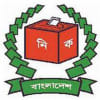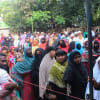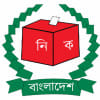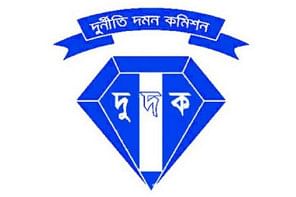If we really want genuinely free and fair elections. . .
The Union Parishad (UP) Election 2016, held between March 22 to June 4, left at least 126 people killed (The Daily Star, June 5, 2016) and at least five thousand injured (Prothom Alo, June 5, 2016) and has been termed as 'the deadliest' in the electoral history of Bangladesh. In terms of unopposed elections, it has also surpassed all previous records with more than two hundred chairmen candidates elected unopposed. Pertinent to election irregularities, a new type of irregularity has been observed: in many places, "ballots of chairmen candidates were not given to the voters".
Much discussion has been done on these aspects by the media, observers, CSOs and political parties. AL leader Suranjit Sengupta has said, "It [EC] does not move, or budge". Few others have said that "the commission should have played a strict role to check violence and irregularities since the start, but it did not", while others have said that the "entire electoral system is on the verge of collapse". As an election monitor, I want to emphasise on the lack of the EC's authority over the election administration, which is the main reason behind such anomalies. During elections, the commission should emerge as the de facto government, assuming total control over bureaucracy, cutting its link with the political government completely.
Let me cite an example from India. During the last parliament election in 2014, the ECI deferred the recruitment of the army chief at the middle of the nine-phase elections, and allowed the Ministry of Defence to forward the file to the appointment committee headed by the prime minister after completing all the nine phases. There is no legal provision of the ECI recruiting or deferring the recruitment of an army chief, but it went ahead with their decision, thereby conveying the message that there should be no confusion regarding the fact that the constitutional body becomes the supreme de facto government during elections.
Our Prime Minister has also condemned the irregularities, violence and deaths in the UP elections, saying that these incidents are "unacceptable". She further added that "We never wanted the UP polls to be like this". Keeping her reaction in mind, I would like to suggest the following reforms to make future elections of the country genuinely free and fair.
Firstly, in Bangladesh there is no law to recruit an election commissioner, although the Constitution has the provision to promulgate such a law. Due to the absence of law, the appointments of commissioners have been at the whim of the government of the day. The successive party governments have generally appointed those considered to be sympathisers of the party, particularly to influence the general elections of members of the parliament. Since 1972, in some cases, due to lack of capacity and professionalism, the EC failed to deliver its constitutional mandate or exercise constitutional power to conduct free and fair elections. In order to ensure credible recruitment, there is no alternative to promulgating a law delienating the qualification, experience and recruitment process of the commissioners. Bangladesh really needs to recruit commissioners who do not bend to governmental, political or other partisan influences while taking decisions. Also they must have the capacity to prevent any external influence to alter their decisions, behaviour or actions.
Secondly, structurally Bangladesh's EC is an independent body; this independence does not mean that it is not accountable to anybody for violence and irregularities in elections. It does not mean that the EC is not accountable for playing an indifferent role or for its failure to enforce the legal provision and conduct free and fair elections. In a few countries of the world, the activities of the Electoral Management Body (EMB) are reviewed by legislature (Pakistan, Georgia). In some countries, the EC is formally accountable to the legislature (Canada), the judiciary (Panama) or the head of state (Fiji, Zambia). When an EC is not accountable to anybody, it is assumed that it is accountable to the citizens, and such accountability means that the commissioners are answerable to the citizens for all their activities, decisions and behaviour. Their performance must be guided not only by law but also by ethical and technical standards. In Bangladesh, the EC is accountable to the citizens; but in many cases, people do not see such accountability. In order to ensure this, the law needs to be revised so that the EC shows actual accountability to the citizens.
Thirdly, a comprehensive security mechanism with specific responsibility of the government and/or EC is vital to avoid violence in elections. During the last UP elections, there were concerns on the responsibility of killings and the provision of security between the EC and government. On May 27, one of the commissioners said, "The Election Commission would not take responsibility for the violence over Union Parishad polls". On June 3, another commissioner raised a question: is there any legal provision that says EC is responsible to ensure security? In response, the Home Minister said that the Commission was trying to put the responsibility of election security on the Home Ministry (Prothom Alo, June 4, 2016). This proves that our electoral system has a serious shortcoming on the issue of election security. Here, one can ask: if EC is not responsible to ensure security why does it prepare or ask for budget for the law enforcing agencies? Article 126 of the Constitution defines that "it shall be the duty of all executive authorities to assist the Election Commission in the discharge of its function", but it does not clearly define how this assistance is given. Thus, I strongly believe that we need a legal framework describing how the executive branch provides support to the EC, including security during elections.
Fourthly, the EC fails to establish its control over the temporary polling personnel recruited as returning/assistant returning, presiding and assistant presiding officers from local administration. The CEC has himself said, "We don't have much authority over them. So, we don't get the desired cooperation from them [local administration]" (The Daily Star, March 21, 2016). Although the Election Officials (Special Provisions) Act, 1991 states that these temporary polling personnel, once appointed as polling officials, are subject to the commission for election duty, there is no legal bar to do their regular duties under the executive branch of the government. This indistinct legal provision is a barrier for the EC to establish full authority over the local administration. Hence, this law needs to be revised to bring those officials under full control of the EC including their posting, transfer and suspension from the service. Also, the law must say that the EC, and not the government, is the final decision maker here,.
Finally, we need an EC which is truly independent from all aspects; this independence does not only mean structural independence, but operational and financial independence along with individual independence of the election commissioners. A truly independent EC possesses three powers: legislative, administrative and judicial power. In order to make our EC fully independent, we need to establish it as the fourth branch of the government.
The writer is Director of Election Working Group.
E-mail: [email protected].

 For all latest news, follow The Daily Star's Google News channel.
For all latest news, follow The Daily Star's Google News channel. 








Comments